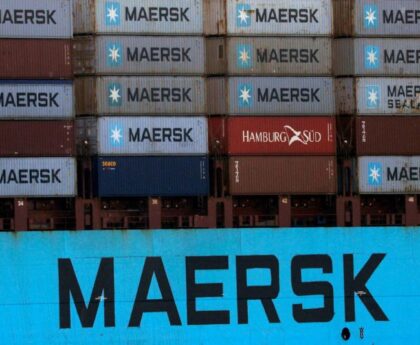Impacted by the Gaza’s situation, maritime transport in the Red Sea is increasingly getting dangerous this year.
December 4, the Pentagon and European maritime insurers report the southern Red Sea as a high-risk area. The rise of Israeli-Palestinian conflict is having a major impact on the security of international trade.
The recent events show an increase in navigation risks in the zone. These include the seizure of ships by the Houthis Terrorist Group (committed to the Palestinian cause). On November 19, its forces hijacked the Bahamas-Flagged cargo ship, Galaxy Leader. A tape released online shows a dozen armed men landing on deck from a military helicopter. Satellite images from November 21 localize the cargo ship off the port of Al-Hudaydah, Yemen. Galaxy Leader’s owners are said to be associated with Abraham Rami Ungar, one of Israel’s richest men.
According to Sal Mercogliano, Chair of the Department of History, Criminal Justice and Politics at the University of Campbell, the situation is worrying. « This seizure with such a large naval presence in place highlights the danger to merchant shipping. While there is a lot of naval power present, the volume of shipping is nearly impossible to police and escort. », he said on X.
In recent weeks, US navy destroyers intercepted missiles. Cargo ships and tankers targeted are usually linked to Israeli interests. On December 9, the Houthi rebels threatened to attack « all ships in the Red Sea bound for Israel, whatever their nationality […] ». Quickly deployed, the french frigate (FREMM) Languedoc then shot down two hostile drones, launched the same day from Yemen targeting the Norwegian oil tanker Strinda. Thanks to the effective intervention, no injuries were reported. The rebels claimed responsibility for the military operation on December 12.
FREMM Languedoc
According to a retired admiral, « The presence of robust naval forces to deter and ensure freedom of navigation is no longer enough ». He believes that the Hamas attack from early October opened the door for violence in the area.
The economy in the region severely disrupted
Consequences are being visible in import/export operations, especially near the Bab el-Mandeb Strait. For shipowners, the cost of operational risks is rising sharply. Everyone must pay a « war risk » insurance premium, valid for seven days. The amount equals to 0.1% of the ship’s value, since the recent Huthi attacks. It is also now required to declare a passageway through the region. The forced redirects of the routes of some companies to Cape Good Hope cause additional costs, passed on to customers.
Pressure and an increase in prices are therefore expected on the hydrocarbon market. At the end of November, OPEC+ is considering further reductions in oil production. The Financial Times assumes that Saudi Arabia will extend its voluntary reduction of one million barrels per day until the end of the year.
Bymaritimescrimes





